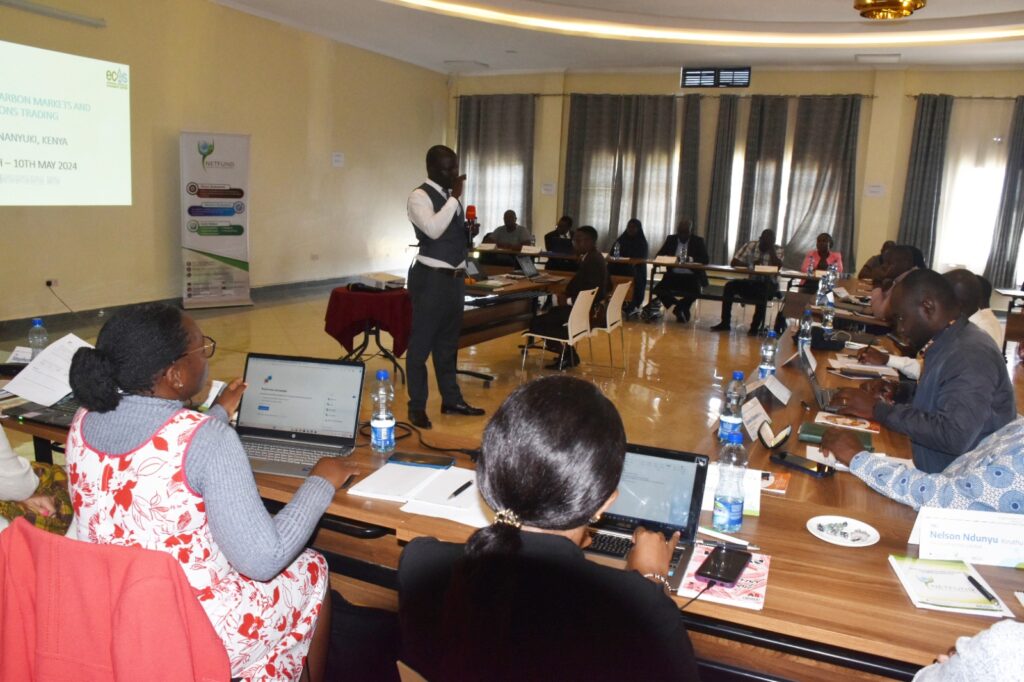
CONCEPT NOTE
INTERNATIONAL TRAINING ON TRANSFORMING DRYLAND FORESTS AND AGROSILVOPASTORAL SYSTEMS
COURSE BACKGROUND
Dryland areas, which cover over 40% of the earth’s land surface, are home to some of the world’s most vulnerable ecosystems and communities. These regions face persistent threats such as desertification, climate change, biodiversity loss, and socio-economic marginalization. At the same time, they hold untapped potential for supporting food security, livelihoods, and ecosystem services through innovative land-use systems like agrosilvopastoralism—an integrated approach combining forestry, agriculture, and livestock.
This course aims to empower professionals with the knowledge and tools to adopt a transformational sustainability approach in managing dryland forests and agrosilvopastoral production systems. Participants will explore economic, social, and environmental dimensions of sustainability, learning how to design and implement context-appropriate solutions that improve resilience and productivity while conserving natural resources.
COURSE OBJECTIVES OF THE TRAINING
By the end of the course, participants will be able to:
- Understand the ecological and socio-economic characteristics of dryland ecosystems.
- Identify the challenges and opportunities in dryland forests and agrosilvopastoral systems.
- Apply the principles of a transformational approach to sustainability across key pillars—economic, social, and environmental.
- Design interventions that align with long-term sustainability goals and integrated land-use management.
- Support policy, planning, and field implementation processes with informed, systems-based decision-making.
WHAT YOU WILL LEARN
Participants will gain skills and knowledge to:
- Describe the unique characteristics of drylands and their food production systems.
- Recognize the major threats and challenges facing dryland ecosystems.
- Apply a transformational sustainability approach that integrates economic, social, and environmental dimensions.
- Understand the expected transformations under each sustainability pillar.
- Design and evaluate policies and projects that enhance the resilience and productivity of dryland forests and agrosilvopastoral systems.
DURATION AND PROGRAM
TARGET PARTICIPANTS
This course is intended for professionals and stakeholders engaged in the sustainable management of drylands. It is particularly beneficial for program and project managers working in forestry, agriculture, and rural development; field practitioners implementing land-use and agroforestry initiatives; and teachers, researchers, and policymakers responsible for guiding strategic actions in natural resource management. Government agencies, land-use planners, and private sector actors involved in dryland value chains and resilience-building initiatives will also gain practical and conceptual insights.
TRAINING MODULES
| No | Module | Details | |
| 1. | Overview of Drylands and the Transformational Approach |
This module introduces the ecological, social, and economic context of drylands, exploring why these landscapes require a specialized and integrated approach. Participants are introduced to the transformational sustainability model and its relevance to dryland and agrosilvopastoral systems.
The key topics include:
|
|
| 2. | The Economic Sustainability Pillar |
This module focuses on improving livelihoods and economic viability in drylands. It covers market integration, value chains, sustainable enterprise models, and income diversification strategies that contribute to resilient agrosilvopastoral systems.
The key topics include:
|
|
| 3. | The Social Sustainability Pillar |
This module emphasizes inclusive development, social cohesion, and institutional empowerment. Participants will explore strategies to address inequality, enhance participation, and strengthen governance structures in dryland communities.
The key topics include:
|
|
| 4. | The Environmental Sustainability Pillar |
Focusing on the restoration and protection of dryland ecosystems, this module examines climate-smart practices, biodiversity conservation, and integrated natural resource management approaches tailored for fragile environments.
The key topics include:
|
|
|
5.
|
Applying the Transformational Approach |
This final module synthesizes learning and applies it to real-world scenarios. Participants learn how to design holistic interventions, monitor their impacts, and support long-term sustainability through adaptive management strategies.
The key topics include:
|
|
TRAINING STYLE
The modules will be taught through PowerPoint presentations, and lectures and will include a case study/field visit, breakout sessions, case studies and other interactive discussion components.
The course will also include a few guest speakers, both in person and via Zoom and other online learning platforms for overseas speakers. This provides useful real-world insights alongside the more theoretical aspects of the course.
The conference faculty shall consist of experienced decision makers, as well as practitioners and representatives from established educational and research institutions active around climate change, engineering and international development. Throughout the course, theoretical presentation of concepts will be moderated and more group discussions and plenary engagements will be optimized. PowerPoint presentations will be made by facilitators and resource persons, to highlight key concepts before embarking on group work.
GENERAL NOTES
- Training manuals and additional reference materials are provided to the participants.
- Upon successful completion of this course, participants will be issued with a certificate.
- We can also do this as a tailor-made course to meet organization-wide needs. Contact us to find out more: info@ecasiafrica.org.
- Payment should be sent to our bank account before the start of training and proof of payment sent to: info@ecasiafrica.org.
ABOUT ECAS INSTITUTE
The ECAS Institute designs and delivers independent and targeted training, research, and consulting services. Our work focusses on climate change and resilience building, carbon markets, renewable energy, nature-based solution, biodiversity conservation, agriculture and food systems, We are located in Nairobi Kenya and work across the African region. We have implemented training and research assignments in Kenya, Tanzania, Uganda, South Sudan, Somalia, Malawi, Rwanda, Congo, and South Africa. Globally, we have supported our partners from the UK, Denmark, Italy, Sweden, Germany, and USA.

